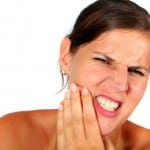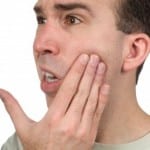 TMJ is the shortened name for a disorder of the temporomandibular joints of the mouth. The temporomandibular joints are situated on either side of a person’s head and connect the jawbone to the skull. Temporomandibular disorder develops when either or both of these joints stop functioning properly. TMJ disorder can be quite debilitating as these joints are necessary for eating, talking and smiling.
TMJ is the shortened name for a disorder of the temporomandibular joints of the mouth. The temporomandibular joints are situated on either side of a person’s head and connect the jawbone to the skull. Temporomandibular disorder develops when either or both of these joints stop functioning properly. TMJ disorder can be quite debilitating as these joints are necessary for eating, talking and smiling.
TMJ disorder affects over 35 million people around the world and while the exact cause of TMJ disorder is unknown, there is a list of contributing factors including infections, autoimmune diseases, jaw injuries and arthritis. A number of genetic, hormonal and environmental factors can also increase the risk of developing TMJ disorder. Studies have shown that a genetic variant, which increases pain sensitivity, has been found to be more prevalent amongst TMJ patients and stress is also believed to be a cause of the condition.
Symptoms of TMJ include persistent ear pain, a stiff jaw, unexplained soreness in the jaw, a popping or clicking sound when the jaw is moved and consistent headaches. This is only a selection of common symptoms and if you have these and other symptoms and suspect you may have TMJ disorder, try eating only soft foods for a day or two and using an ice pack to alleviate pain. You should also avoid chewing gum and opening your mouth too wide. Pain can be managed with over-the-counter remedies. If symptoms persist or worsen and you are from Leeds, contact City Dental today.
As TMJ disorder is still being studied, scientists and healthcare professionals prefer to treat the disorder as gently as possible, with conservative treatments that do not cause permanent changes in the jaw or the position of the jaw. Most TMJ patients manage their pain by making changes in their diets (increasing their intake of soft foods) and through the use of paracetamol or aspirin.










